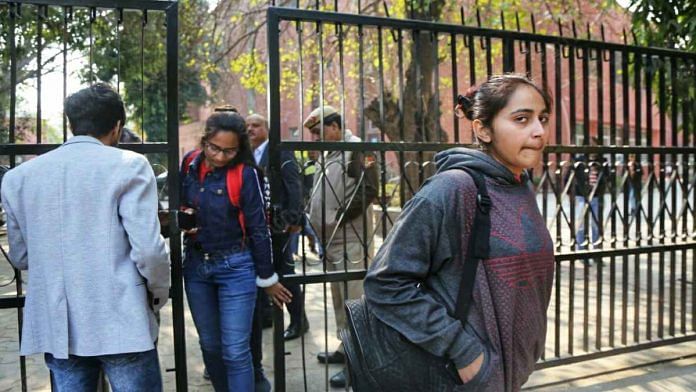New Delhi: On the central government’s instructions, the University Grants Commission (UGC) has come up with a curriculum to educate students on the concept of ‘global citizenship’.
In a letter sent Tuesday, the UGC asked all higher education institutions to adopt the Global Citizenship Education (GCED) curriculum framework devised by the regulator. The letter, accessed by ThePrint, also includes details of the curriculum, which will dwell on topics like human rights, gender equality, peace, and climate change.
The curriculum draws from the National Education Policy 2020 that makes a strong pitch for it. The policy calls for students to become “aware of and understand global issues and to become active promoters of more peaceful, tolerant, inclusive, secure and sustainable societies”.
“In view of the importance given to the concept of…‘global citizenship’ in the National Education Policy 2020, UGC has developed an ‘Educational Framework for Global Citizenship in Higher Education’ which would provide conceptual clarity on how higher education institutions can integrate the concept of global citizenship amongst the students through teaching, pedagogy and research,” the letter from UGC Secretary Rajnish Jain said.
“All universities and colleges are advised to adopt the GCED framework and integrate the concept of global citizenship among their learners,” it added.
The main themes of the curriculum include “global governance systems, structures and issues”, which will cover local, national and global issues and explore the interconnectedness between local and global issues.
Under the theme “cultural diversity and tolerance”, the curriculum says: “Respecting differences in everyday life and treating all equally with respect for diversity is the core essence of global citizenship”.
Inequality, gender equality, human rights education, peace and non-violence, combating climate change and its impact, as well as environmental sustainability are the other themes that will be taught under this curriculum.
The commission wants universities and colleges to adopt the basic framework and introduce the course accordingly. It said that the GCED can be included as an integrated subject within different subjects like law, education, literature, science and social sciences. It can also be introduced as a separate, standalone subject/activity open to all transdisciplinary courses and degrees, it said.
For assessing students, the UGC said students should be encouraged to carry out short-term action and research-based projects, which can then be assessed in the form of their social community impact.
Also Read: Higher education evaluation must focus on skills, outcomes and not just marks, says UGC
‘Not alien to India’
The framework describes a “global citizen” as one who “is aware of the world and has a sense of their role in it, respects and honours cultural diversity, participates in communities at all levels, gets involved as a member of the global community, demonstrates problem-solving and critical thinking skills and values traditional knowledge”.
The curriculum also says that the concept of global citizenship has its origins in India and is not something that is “alien” to us.
“India has a rich tradition of promoting universal values. Ancient Indian texts are replete with knowledge advocating ‘Vasudhaiva Kutumbakam’ and ‘Yatra Visvam Bhavtyekanidam’, the whole world is one family, and the idea of universal peace ‘Shanti’, thus advancing people to be cosmic citizens by widening their narrow selves,” it added.
(Edited by Gitanjali Das)
Also Read: UGC draws flak as ‘Thank you PM Modi’ posters for free vaccines spring up at universities



